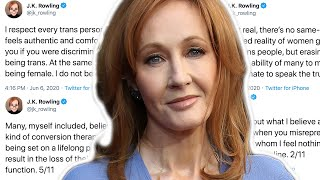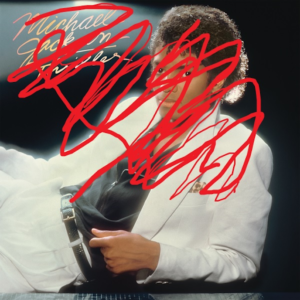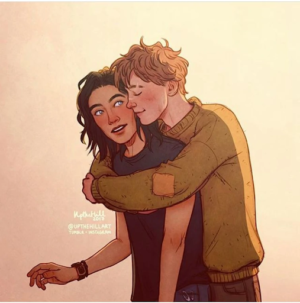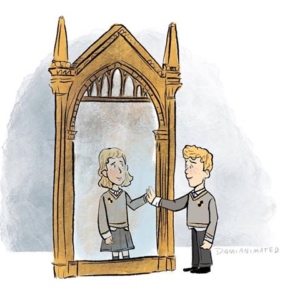On JK Rowling: Separating the Art From the Artist

Source: Clevver News
January 13, 2022
“The stories we love best do live in us forever, so whether you come back by page or by the big screen, Hogwarts will always be there to welcome you home”
For the longest time, this was the pure and idyllic idea that Hogwarts represented to all of those who had fallen in love with the wizarding world: a sanctuary for the outcasts and the underdogs, where everyone, regardless of who they are or where they came from, could be accepted with open arms.
However, with a single computer click, Harry Potter author JK Rowling cemented herself as simultaneously the creator and destroyer of the very magic she had brought to life. With Rowling’s Twitter controversy and the rise of cancel culture comes the question: can the art ever be separated from the artist? Is there life for these stories beyond the death of their creator’s reputation?
Harry Potter is perhaps one of the greatest representations of what a single story can mean to thousands of individuals. No matter the medium, our favorite stories have a way of transcending beyond the page, screen, or stage in which they are told to hold an infinitely more meaningful place in our hearts. We don’t just love these stories–we live them. And no other story has stood the test of time quite like that of ‘the boy who lived.’ Though it has now been 25 years since the release of The Philosopher’s Stone in 1997, the fanbase remains alive and strong, proving just how much a story can impact the lives of its consumers. It is this ardent devotion to the tale that has made Rowling’s Twitter controversy so heart-shattering for fans of the Harry Potter universe.
In 2018, Rowling came under fire when she voiced support for Maya Forstater, a tax specialist who lost her job due to transphobic comments. In a series of ill-worded tweets, Rowling essentially mocked the idea that anyone but cisgender women could have a period, expressed fears of sexual predation regarding trans men and women being allowed into the bathrooms of the gender they identify with, and asserted firmly that “sex is real.” Effectively, Rowling’s remarkably ignorant comments invalidated an entire community of people by suggesting that the very foundation of their identity is nonexistent, a narrow-minded view that came in stark contrast to the wizarding world fans have come to know–a world where Dumbledore tolerantly professed that “differences of habit and language are nothing if our aims are identical and our hearts are open.”

With betrayed and conflicted fans fearing they must surrender the world they have come to love so dearly, debates regarding cancel culture are more prevalent than ever. Many have begun to wonder how (or if) they can reconcile their love for the creation with their disapproval of the creator. While the area does seem extremely gray, with responsibility and accountability, there may yet be hope for those who count themselves among the Potterheads.
For one, JK Rowling is by no means the first creator to possess problematic views. Pop culture has long (and often unknowingly) exalted the work of a plethora of less-than-exemplary individuals, such as Pablo Picasso, John Lennon, Michael Jackson, and Ted Hughes to name only a few. The question is, then, can we appreciate the cultural impact of these individuals without supporting them as human beings?
Taking a look at Picasso, the artist has a well-documented past of misogyny, with his ex-lover Françoise Gilot describing his views of women as “machines for suffering” who were either “goddesses or doormats.” Of course, history keeps virtually no record of this view of Picasso, remembering him only as the man who pioneered one of the most influential artistic movements of the 20th century. And in many ways, these facts do not negate each other.

For one, as argued by CNN journalist Kate Maltby in the case of Michael Jackson, his work “is part of history now, there will always be artists influenced by him. He made so much of music what it is today.” Through his artistic achievements, the work of Jackson, like that of Rowling and Picasso, “has taken its place in our cultural legacy” in a way that cannot possibly be “cut out and cast aside.” Rather, “Jackson’s critics should be open-minded enough to recognize that his impact on our musical landscape can’t be reversed. But his defenders should be open-minded enough to accept he may still have done terrible things.” These two truths, which can both be directly applied to Rowling, do not have to cancel each other out.
In addition, if going by the logic of punishing the art because of its artist, consumers are going to find their sources of entertainment severely dwindled, not only by the scandals of the principal architects–the authors and actors–but the people behind the cameras and the pens as well: the producers, the screenwriters, and the companies. Holding an entire piece of art accountable for the personal beliefs of all those involved in its creation is simply not practical, and as Maltby pointed out, “do we assume that all artists whose art we enjoy were good men or women? Should we tell our children that, if Spotify streams a musician, he or she is automatically a good influence?” There is never a sure-fire way to guarantee that any celebrity is morally good or bad, and as transfemme digital designer Rori Porter says, “I don’t want to give J.K. Rowling the satisfaction of taking away from me something that I loved as a kid.” If we cannot guarantee that any of our heroes are truly good people, why then deny ourselves the freedom to enjoy what those individuals created?
This lends itself to the next point: when an author, director, or playwright releases a work they have created, that creation ceases to belong to them. As put by LGBTQIA+ historian, activist, and Harvard professor Micheal Bronksi, “‘Potter,’ at this point, has a life completely beyond its creator.” Though the authors receive the royalties and the acclaim, it is the fans who truly take ownership of the story and give it the life that enables it to survive through generations.
One form this takes shape in is the emotional and personal meaning fans extract from stories, which is entirely individual to each consumer and bears no reflection upon the character of the creator. Certainly, if the book or movie was projecting blatantly prejudiced views, then that work clearly cannot be separated from its creator’s ideology. But the curious case with Potter is how deeply its overarching themes contradict Rowling’s own views and how easily the two can be separated from each other.
The Harry Potter books are by no means flawless bodies of work, being peppered with now cringe-worthy attempts at progressivism that could only have flown well in the 90s (looking at you, poorly-executed House Elf slavery allegory, among other things). However, the bulk of the seven-year journey of the boy who lived teaches readers valuable lessons about acceptance, tolerance, and unity. It explores themes of prejudice through the discrimination Hermione faces as a muggle-born, and Hagrid as a half-giant. It discusses layers of classism with the Weasley and Malfoy families. As Delia Gallegos, marketing director at the website Black Girls Create, explains, “the books are about the underdog, the odd characters that you don’t understand . . . Harry, our protagonist, reaches out to people who are different from him. And he doesn’t judge them for being different . . it’s such a core tenet in her books that the underdogs are the true heroes.” And in many ways, this message has not been dulled or changed by the controversies that have developed beyond the pages.
As articulated by Harry Potter himself in a response to Rowling’s scandal, actor Daniel Radcliffe told fans, “I really hope that you don’t entirely lose what was valuable in these stories to you…. And in my opinion, nobody can touch that. It means to you what it means to you.” His costar, Ginny Weasley actress Bonnie Wright, expressed a similar view: “If Harry Potter was a source of love and belonging for you, that love is infinite and there to take without judgment or question.” This is a universal truth of storytelling– the meaning the story has to the fans is incorruptible by and transcends entirely beyond the author’s beliefs, or as Dr. Travis Langley, Professor of Psychology at Henderson State University, describes, “whatever it is, that is still a part of you.” The author may own the story, but it is ultimately the fans that own its meaning.
And through the extensive network of fandom culture, the fans come to own the worlds themselves as well. In the case of such an expansive universe as Potter, that spans across multiple movie series, video games, theme parks, and now even a Broadway show, fans exert direct power over the wizarding world through the “participatory culture” that enables them to take on roles “not only as consumers but also as producers and creators of some form of creative media.” Through fanfiction, fanart, theories, and cosplay, fans quite literally make the story their own, and with ‘headcanons,’ they are able to project their own interpretations of the story and characters into the narrative. For example, many fans have come to canonically believe that Marauders Sirius Black and Remus Lupin were in fact secret lovers, or school bully Draco Malfoy was actually crushing on Hermione Granger all along, even when neither of these subplots are in any way implied in the original work. The power of fan influence is simply strong enough that it completely takes hold of, changes, and molds the narrative in ways that are entirely distinct from the author’s original intent.

In this way, the stories come to be entirely distinguished from their architect. As articulated by Andrew Sims, lead host of the Harry Potter fan podcast MuggleCast, “we created this fandom. J.K. Rowling did not create this fandom . . . She created the books, we all gathered online to talk about them, and then that’s how the fandom came into existence.” Renae McBrian, a young adult author who volunteers for the fan site MuggleNet, holds a similar view: “we created the magic and community in that fandom. That is ours to keep.”
Essentially, the universe of Harry Potter has grown so overwhelmingly large that Rowling, the human, utterly pales in comparison. The name on the cover bears little weight when put side by side with the relationships and attachments fans have formed with the characters and each other, as well as the multitudinous ways in which they have expanded and differentiated the story far beyond Rowling’s creative control.
Of course, the harm JK Rowling has done to the trans community is inexcusable and cannot possibly be dismissed by the now popular joke of fans that “Daniel Radcliffe wrote Harry Potter.” Though one may continue to enjoy the work of the artist, they cannot completely brush aside the lived consequences the artist’s words and actions have wreaked. However, holding Rowling accountable whilst still enjoying her work is possible with the right care taken.
The most effective way to reconcile these concepts is to stop investing in any products Rowling would receive monopoly from, including merchandise, theme park tickets, movie tickets, video games, or theater tickets. If you already own the books and the movies, great—keep reading and watching them! Rowling won’t get any more money from you. If you don’t, try shopping second-hand or from small businesses instead.
Another fantastic resource to use is the website for ‘The Gayly Prophet,’ a queer Harry Potter fan podcast that has curated a guide on how to “go about “conscientiously boycotting” Rowling. The guide creators emphasize that “[J.K. Rowling] wrote Harry Potter, and we can’t pretend she didn’t. But that doesn’t mean that we can’t love these books that meant and continue to mean so much to so many of us . . . it does mean that we need to do so with intention and integrity.”

Ultimately, fans must accompany their continued love for the stories with a moral responsibility to acknowledge and confront the ways in which Rowling has hurt countless individuals and enjoy her content with that awareness in mind. If fans can do this, the art can remain independent from the artist, and Hogwarts will hopefully still feel like home to those who fell in love with it and continue to love it.
Though the woman is clearly flawed, much of what Rowling said all those years ago still stands true: the stories we love the most do live on us forever. Regardless of the author and their views, the characters and the meanings we glean from stories in our own lives are irrevocable and entirely our own. We own these stories by loving them, and although it requires extreme conscientiousness and care to sustain that love in the face of scandal, it is ultimately not impacted by the individual whose name happens to be on the copyright.
Sources
- https://www.glamour.com/story/a-complete-breakdown-of-the-jk-rowling-transgender-comments-controversy
- https://www.nytimes.com/2020/06/12/style/jk-rowling-transgender-fans.html
- https://www.ign.com/articles/how-harry-potter-fans-are-coping-with-jk-rowling
- https://haenfler.sites.grinnell.edu/subcultural-theory-and-theorists/fandom-and-participatory-culture/
- https://www.usatoday.com/story/entertainment/books/2020/07/31/harry-potter-fans-grapple-j-k-rowling-transgender-remarks/5471834002/
- https://www.ign.com/articles/how-harry-potter-fans-are-coping-with-jk-rowling
- https://historycollection.com/16-times-artist-pablo-picasso-would-have-been-called-out-during-the-metoo-movement/11/
- https://www.cnn.com/2019/03/12/opinions/michael-jackson-music-should-we-listen-maltby/index.html
